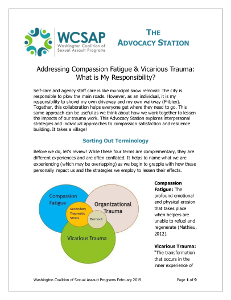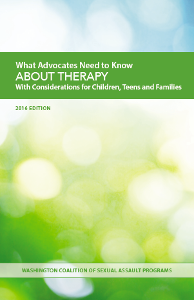After the 2019 legislative session, the Statute of Limitations (SOL) law was updated to eliminate the SOL for specific sexual assault crimes, and modify it for others. This law is not retroactive, meaning sexual assault crimes committed prior to this law’s effective date (July 28, 2019) cannot be prosecuted according to this new law. RCW…
- Prevention
- Working With Survivors
- Accreditation
- Advocacy Areas
- Culturally Specific
- Legal Resources
- Management
- Medical Resources
- SA Protection Order
- Subpoenas
- Support Groups
- Tech Safety
- Resources
- Policy
- Training


